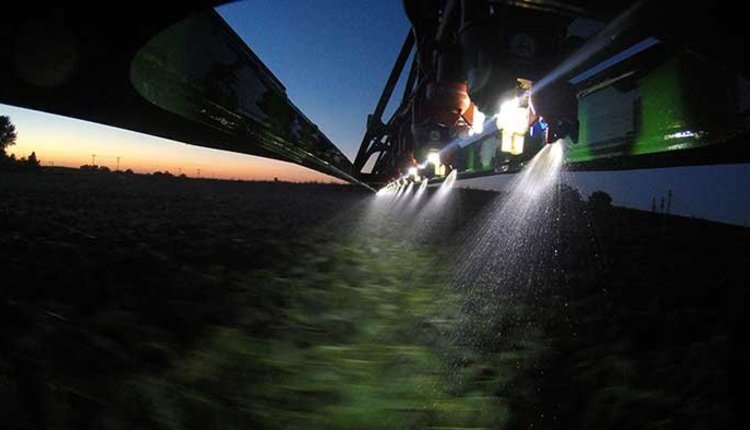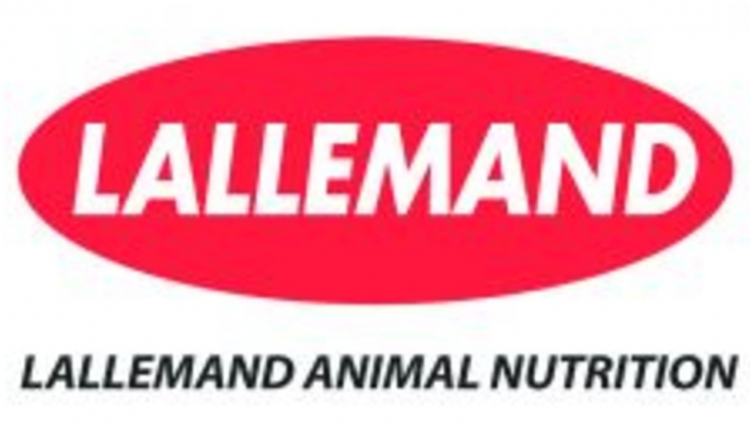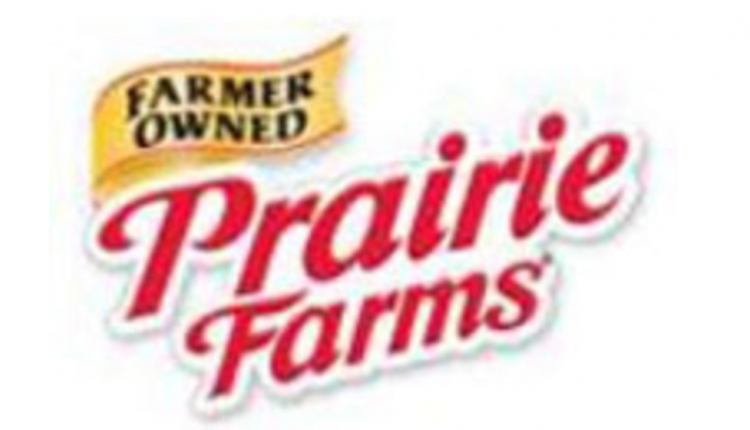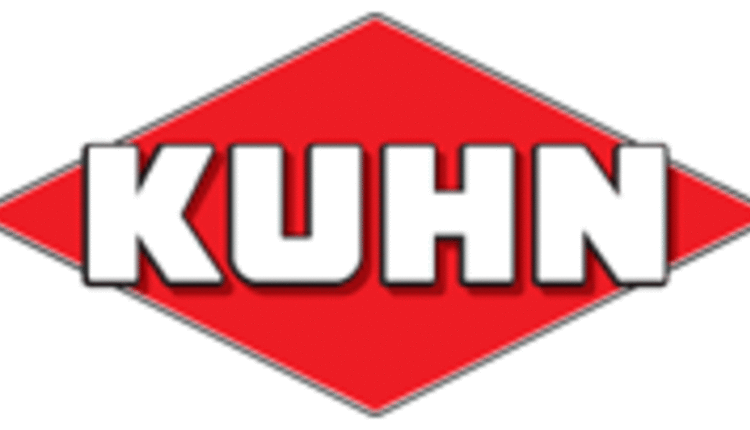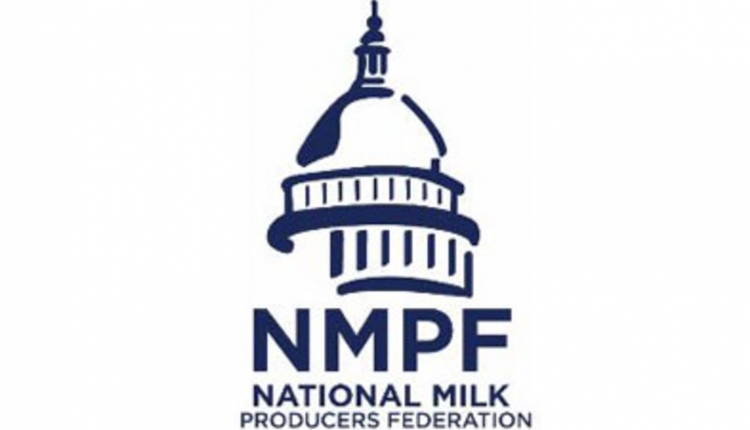by Shelli Manning
 About a third of the way up the beautiful Door County peninsula, just before all the little towns and villages renowned for their fish boils, cherry orchards and stunning Lake Michigan views, is a dairy farm different than any other.
About a third of the way up the beautiful Door County peninsula, just before all the little towns and villages renowned for their fish boils, cherry orchards and stunning Lake Michigan views, is a dairy farm different than any other.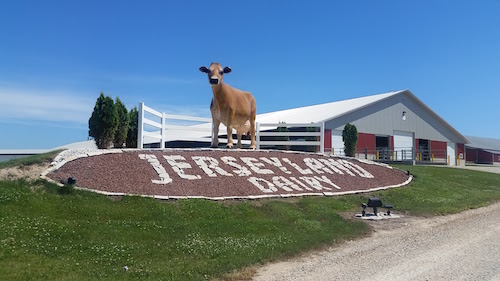
When you arrive at Jerseyland Dairy, the first thing you'll notice is how meticulously the farm is cared for and how it doesn't even smell like you're on a dairy farm. Well perhaps that's not true. The first thing you'll notice is the giant cow statue beckoning you to the property and the stones carefully laid to spell out the farm's name, but right after that, you'll notice how clean the 3,600 head operation is. Tanner Schmidt, Jerseyland's Dairy Manager, wouldn't have it any other way.

Tanner is the middle son of Randy and Dena Schmidt. Randy and Dena raised their three boys on the farm and like most folks in production agriculture, they hoped at least one of their kids would be interested in taking over the operation someday. While all three sons showed interest at an early age, their attention leaned more towards crops. Nevertheless, Randy held out hope that one of them would eventually come to the cattle side. When Jerseyland's Dairy Manager was set to retire around the same time Tanner was graduating from Fox Valley Technical College with an Associate's degree in Agricultural Business and Science Technology, the stars seemed to be aligning for Randy to get his wish. Tanner agreed to take on the role as the farm's Dairy Manager, no small feat for someone who was just 20 years old.
The final piece in the puzzle would be family friend and dairy consultant, Pauly Paul of Complete Management Consulting. Randy called Pauly and discussed what their family had been contemplating. Pauly agreed to work with Tanner, to help set him up for success. A year later, it seems it was a good decision by all.
In addition to the meticulous care Jerseyland receives and its very young Dairy Manager, it has much more that sets it apart from other farms. Some of those factors are technical their rotary milking system, methane digester, genomic testing aren't exactly common for dairy operations. Other unique factors have to do simply with the size of the farm and the correlating requirements as the county's only CAFO, but perhaps the biggest difference begins with the cows themselves: the farm has only Jersey cows, no Holsteins (hence the name, Jerseyland). While there were several contributing factors to that decision, first and foremost it stemmed from the farm's former life as a custom heifer operation. Before they began milking cows in 2012, they knew the small freestallswould have to be replaced in order to accommodate full grown Holsteins. Rather than get bigger equipment they opted for smaller cows. The benefits they've discovered as a result include; Jerseys calve easier, they are more feed efficient, they take the heat very well and smaller cows mean a smaller carbon footprint, which is especially important in a highly protected area such as Door County, Wisconsin.
The one downside to milking Jerseys led to yet another decision that would set the farm apart. When Jersey calves are born, they weigh around 50 pounds about half the size of a Holstein calf that makes them harder to keep alive in the first few weeks of life, particularly during the bitter Wisconsin winters. The Schmidts weren't seeing the results they wanted using calf growers, which led them to build their own calf operation. A big undertaking no doubt, but they were confident once the project was complete and they were able to exercise the same exemplary care and management of their calves as the rest of the farm benefits from, it would be worth the investment. They were right. In February of 2016 they officially made the switchover and their calves now spend the first eight weeks of life in a controlled 70 degree environment, which not only improved the overall health and wellness, resulting in bigger animals and less drug use but it also made Jerseyland Dairy completely self-sustained, a fact the family is very proud of.
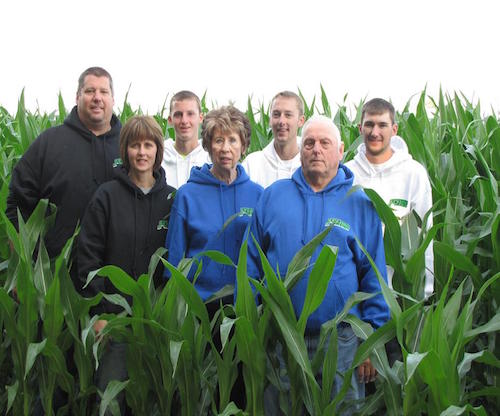
Randy and Dena have a lot to be proud of these days, with all three of their boys involved in the family business and they couldn't be happier with how Tanner has taken to his new role. "He sees the big picture," says Randy, "and he's got a great attitude, the staff respond to him very well." The farm has seen lower turnover since Tanner took over. They credit much of his technical skill to what he learned at Fox Valley, and the great teaching staff there, as well as what Pauly was able to teach him in terms of modernized dairy practices and labor efficiencies. It seems though, Tanner being a good fit for this role on the farm goes back much further. Even in high school, he had a unique approach. He hated the politics of school so he put his nose to the grind and worked hard enough to graduate from Southern Door High School a semester early. Then in college, he made the Dean's List and made such an impression on his teachers, that each and every one still makes it a point to stop by the farm whenever they're in the area. Tanner enjoyed college more than high school, and did have interest in pursuing a four year degree, but to hear him tell it he just couldn't stand to be away from the farm any longer.
Amongst all the reasons for Tanner's success, he gives much of the credit to his parents. He says that without the unwavering guidance and support they've shown him, such as keeping him in the loop very early on with finances and letting him explore and learn through experience even when that means making mistakes he wouldn't have been prepared to take on such a complex role.
Anyone who's met Tanner would say his success stems from his amazing, positive attitude, love for family and passion for farming. To him, it's all one in the same. He says he loves being able to work with his family each and every day, it's like being at home all the time. Some kids his age might be overwhelmed by such a life, considering it a burden, perhaps feeling forced into a career which doesn't necessarily suit them, but Tanner doesn't see it that way. "I'm lucky," he says, "not everyone gets an opportunity like this, to be born into a family where you can work in something you're passionate about each and every day. It's a good life."
What's next for Tanner and the rest of the crew at Jerseyland? Eventually, Tanner says, he's got the same dream as his dad raise his own kids on the farm and hopefully they'll take over some day. In the meantime, most likely more of the same. More doing what they all love and fostering internal growth. As a CAFO, they don't make expansion decisions lightly or based on simply wanting to be bigger and better, but in the knowledge that in order to remain successful, they need to continue to grow. The world's food supply depends on families like the Schmidts, so expansion isn't a matter of if, but when.
At just 21, Tanner Schmidt has found what some people never find passion and a way to live a life immersed in it and he sees no reason to change that. "My focus is here, my future is here."
To learn more about this progressive farm, go to www.jerseylandllc.com.
About the Author: ANIMART's staff writer, Shelli Manning, works to share the human interest side of individuals in production agriculture and communicate their passions which contribute to our unique American Story. She is the published author of Little Fish, as well as a motivational speaker on women's issues and an advocate for the reduction of domestic violence.
8.09.2016
